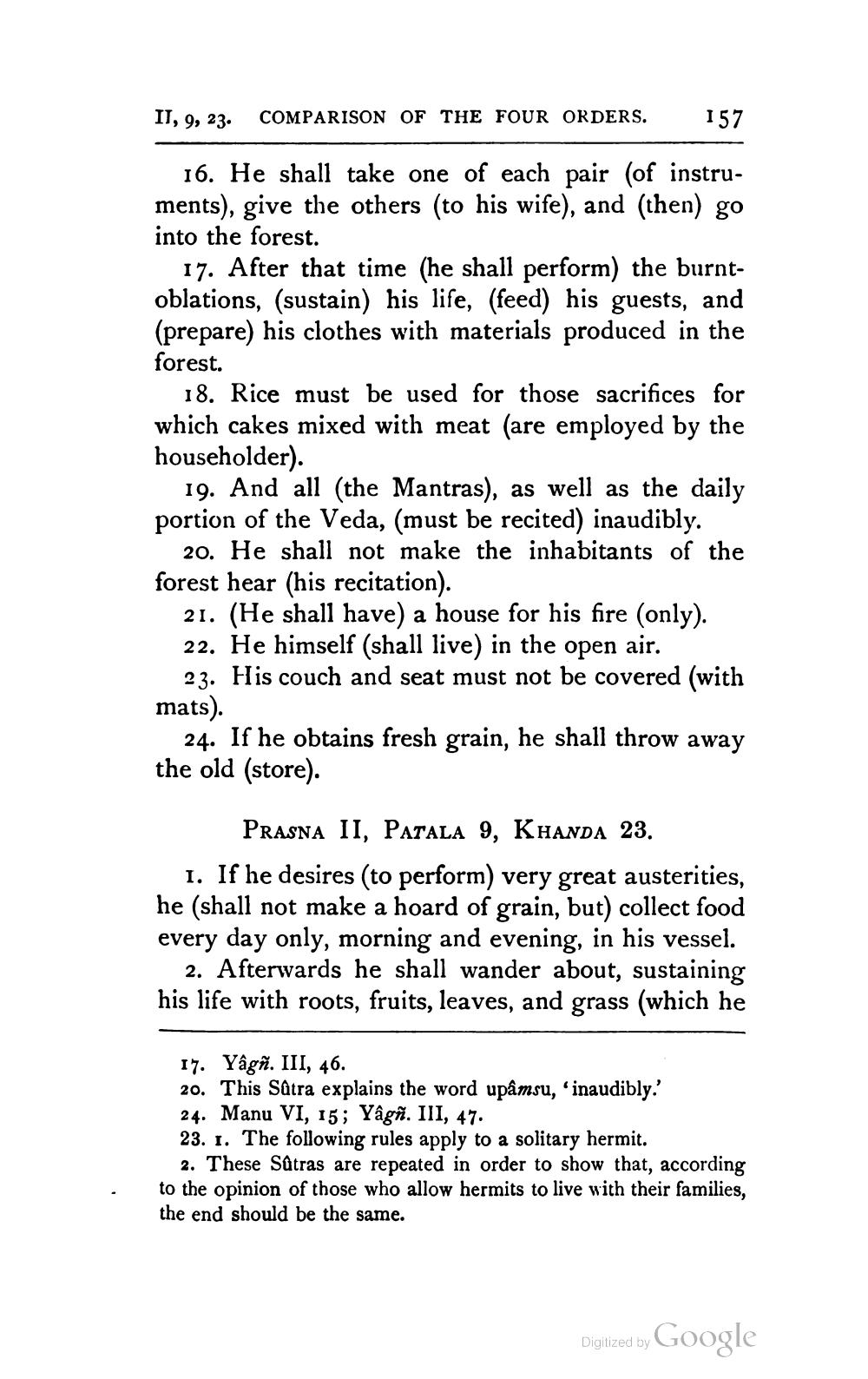________________
II, 9, 23. COMPARISON OF THE FOUR ORDERS.
157
16. He shall take one of each pair (of instruments), give the others (to his wife), and (then) go into the forest.
17. After that time (he shall perform) the burntoblations, (sustain) his life, (feed) his guests, and (prepare) his clothes with materials produced in the forest.
18. Rice must be used for those sacrifices for which cakes mixed with meat (are employed by the householder).
19. And all (the Mantras), as well as the daily portion of the Veda, (must be recited) inaudibly.
20. He shall not make the inhabitants of the forest hear (his recitation).
21. (He shall have a house for his fire (only). 22. He himself (shall live) in the open air.
23. His couch and seat must not be covered (with mats).
24. If he obtains fresh grain, he shall throw away the old (store).
PRASNA II, PATALA 9, KHANDA 23. 1. If he desires (to perform) very great austerities, he (shall not make a hoard of grain, but) collect food every day only, morning and evening, in his vessel.
2. Afterwards he shall wander about, sustaining his life with roots, fruits, leaves, and grass (which he
17. Yâgñ. III, 46. 20. This Sätra explains the word upâmsu, 'inaudibly.' 24. Manu VI, 15; Yâgñ. III, 47. 23. 1. The following rules apply to a solitary hermit.
2. These Sätras are repeated in order to show that, according to the opinion of those who allow hermits to live with their families, the end should be the same.
Digitized by Google




